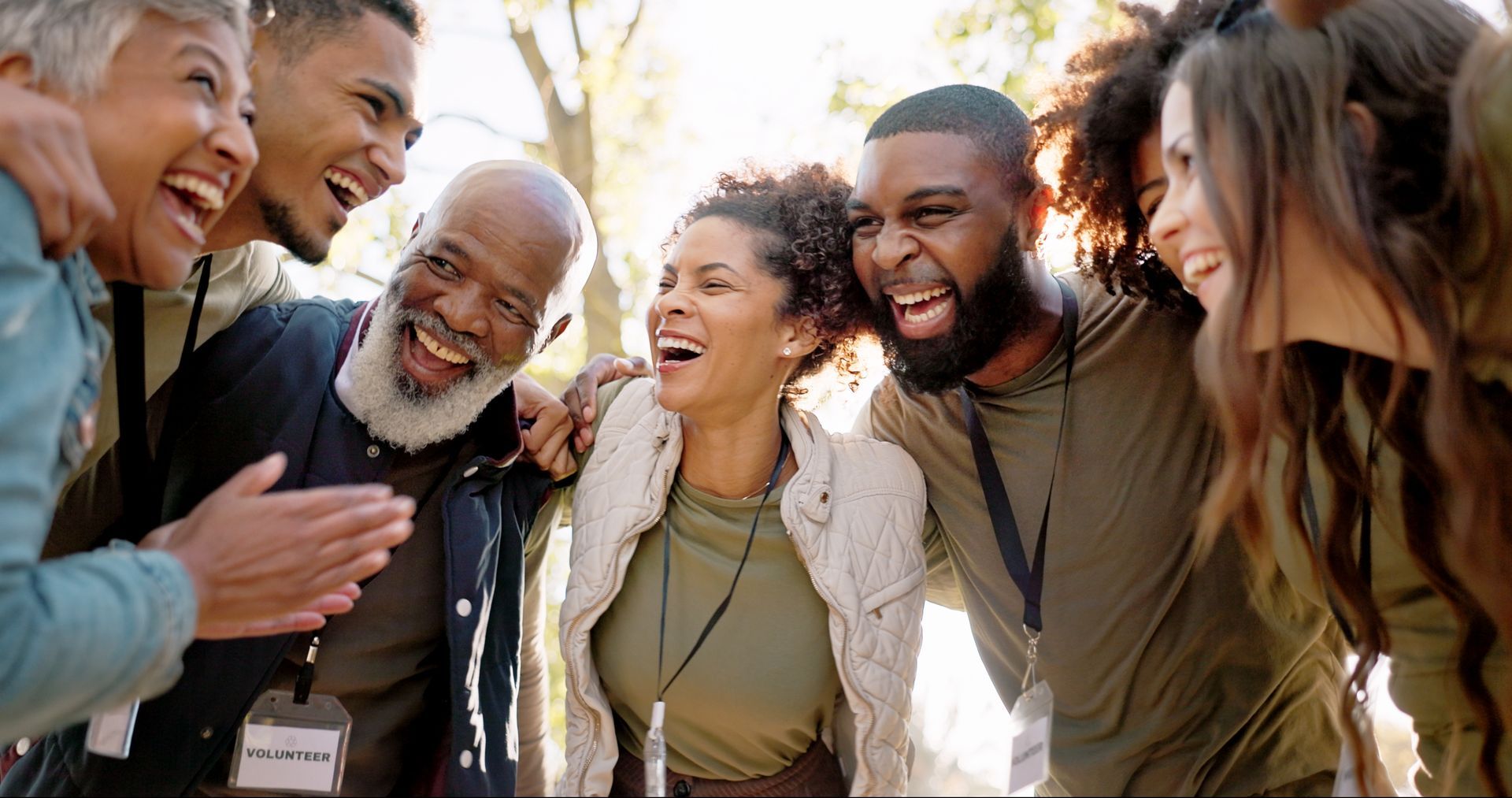Why you need peer support to flourish upon re-entry from prison
Serve current and formerly incarcerated individuals to promote wellbeing and flourishing in their community.
In an era of mass incarceration with more and more people being released to communities that are ill equipped to reintegrate them, formerly incarcerated men and women can find comfort and hope in the ability to turn toward one another for mutual support. With our peer support specialist training, you can serve as a valuable role model and peer counselor for those walking the road to well-being. https://www.labarberalearning.com/peer-support-specialist-training
The story of David McMillan.
In 1993, at a noted after-dark meeting place for homosexuals in East Texas, a group of three men, one aged 29, the "ringleader," and two others, ages 19 and 17, abducted a 23-year-old man named Nicholas West from the park and drove him down a rural road in their pickup.
After forcing West to remove his clothes, and several minutes of untold torture, the three men shot West to death. West was abducted from a park in Tyler, Texas, taken to a gravel pit outside of town, shot nine times, and left to die (UPI, 2003). The three were arrested shortly after the incident and sentenced to life in prison.
I met David McMillan, one of the three, who was 17 at the time he was convicted, and he was now well into his 29th year of a life sentence. I talked with him during a group interview in July when I was there researching the effectiveness of The Urban Ministry Institute (TUMI), a prison-based theological training program in which McMillan was a student.
A 2014 Vanity Fair article portrayed McMillian and his partners as cold-blooded killers, which was likely an accurate description of the young man who began his prison sentence at 17. The man I met, 29 years into his sentence and eligible for a parole hearing in a few short months, was nowhere near the same person who entered prison 29 years ago.
He has experienced an incredible transformation due to his participation in TUMI, but was he ready to re-enter the community he lived in before his incarceration?
Is he ready for re-entry?
McMillan shared his fears about being released and returning to the community after 30 years in prison. Would he be able to pick out toothpaste from the rows and rows of options available at the local drug store (options at the prison "store" were limited to two)? Would he overreact one night if his future wife touched him tenderly in the night (if someone touches you in prison while you're sleeping, it's definitely not a good thing)?
Would he panic at the DMV while getting his identification in order (when a lot of people are milling about near you in prison, it's also not a good thing, and you must keep your guard up at all times, fully prepared to defend yourself)?
With someone who possessed this level of self-awareness and thoughtfulness, I wondered…was I sitting two feet away from the same man in the article? Most certainly, I was not. Still, was he ready for re-entry?
The challenges of re-entry.
Over 10,000 ex-prisoners are released from America's state and federal prisons every week and arrive on the doorsteps of our nation's communities. More than 650,000 ex-offenders are released from prison every year, and an estimated 9 million are released from jail. Studies show that approximately two-thirds will likely be rearrested within three years of release, according to the United States Department of Justice (2022).
"Once released, formerly incarcerated people face a myriad of barriers to successfully re-entering society. They are not allowed to vote, have little access to education, face scant job opportunities, and are ineligible for public benefits, public housing, and student loans. These obstacles have profoundly negative effects on millions of American families and make it practically impossible for millions of people who are returning home to be the engaged, responsible citizens we say we want them to be" (The Leadership Conference, 2017).
What can be done to help people who are released from prison keep from being rearrested? With no job, no money, and no place to live, returnees often find themselves facing the same pressures and temptations that landed them in prison in the first place.
Assisting ex-prisoners in finding and keeping employment, identifying transitional housing, and receiving mentoring are three key elements of successful re-entry into our communities," stated the DOJ (2022).
How peer mentoring changes the trajectory of those returning from prison.
Research also says those who are less likely to recidivate are those who have a community support system. Individuals returning from incarceration to their communities are more likely to succeed if they have a support system, especially from peers with lived experience.
Peer support is a concept where people with similar experiences help each other from a place of shared understanding. Common lived experience is critical to making peer support effective.
Heidemann and colleagues (2014), for example, stressed that in an era of mass incarceration with more and more people being released to communities that are ill equipped to reintegrate them, formerly incarcerated men and women can find comfort and hope in the ability to turn toward one another for mutual support.
Much research demonstrates that their peers who are further along in the re-entry process are yearning to help. Those released should seek out their peers who are learning to live successful lives in the community.
More recently, Gonzales et al. (2019) investigated the use of peers who applied their lived experiences to assist clients in seeking treatment for substance use and mental health conditions in addition to helping them locate housing and employment.
If you want to help change a life and facilitate successful re-entry, where can you go to receive training?
Peer support training.
Several organizations train peer support workers in the field of re-entry. Via Hope is one such organization in Texas that offers re-entry peer specialist certification, helping others use their lived experiences to provide support and hope to other people who may be trying to find their way through re-entry. Via Hope offers several different modules available for online training at a variety of price points.
Whereas Via Hope offers training at specified intervals over a few days during the calendar year, LaBarbera Learning Solutions provides a self-paced online training format that you can complete anytime.
We offer a 15-module digital learning solution to equip you with the specialized skills you need to transform your experiences into practical, supportive services that help others forge their path to well-being.
For just $250 for the complete series of courses, or $89 for individual levels, you can start anytime and learn at your own pace on any device, such as a desktop, laptop, tablet, or phone.
A professor and researcher with two doctoral degrees wrote our curriculum.
Our training provides content listed under the core competencies by the Substance Abuse and Mental Health Services Administration (SAHMSA).
Each course has a participant workbook to guide users through the basic concepts of effective listening, the cognitive behavioral approach to counseling, and motivational interviewing. Each chapter includes key takeaways from the online curriculum, pages for notetaking, and activities not found in the online curriculum to help users deepen their learning.
Participants who desire the complete certification will complete the online training, engage in fieldwork or internship practices under supervision, reflect on their internship experiences, and take a final exam to earn their certification.
With our peer support specialist training, you can serve as a valuable role model and peer counselor for those walking the road to well-being. Be a part of the solution.
Find out how to get started with your peer support training today by clicking here.
References
Gonzales, J. M. R., Rana, R. E., Jetelina, K. J., & Roberts, M. H. (2019). The value of lived experience with the criminal justice system: a qualitative study of peer re-entry specialists. International Journal of Offender Therapy and Comparative Criminology. https://doi.org/10.1177/0306624X19830596
The Leadership Conference. (2017). Factsheet - barriers to successful re-entry of formerly incarcerated people. http://civilrightsdocs.info/pdf/criminal-justice/Re-Entry-Fact-Sheet.pdf
The United States Department of Justice. (2022). Prisoners and prisoner re-entry. https://www.justice.gov/archive/fbci/progmenu_reentry.html#:~:text=Over%2010%2C000%20ex%2Dprisoners%20are,within%20three%20years%20of%20release










